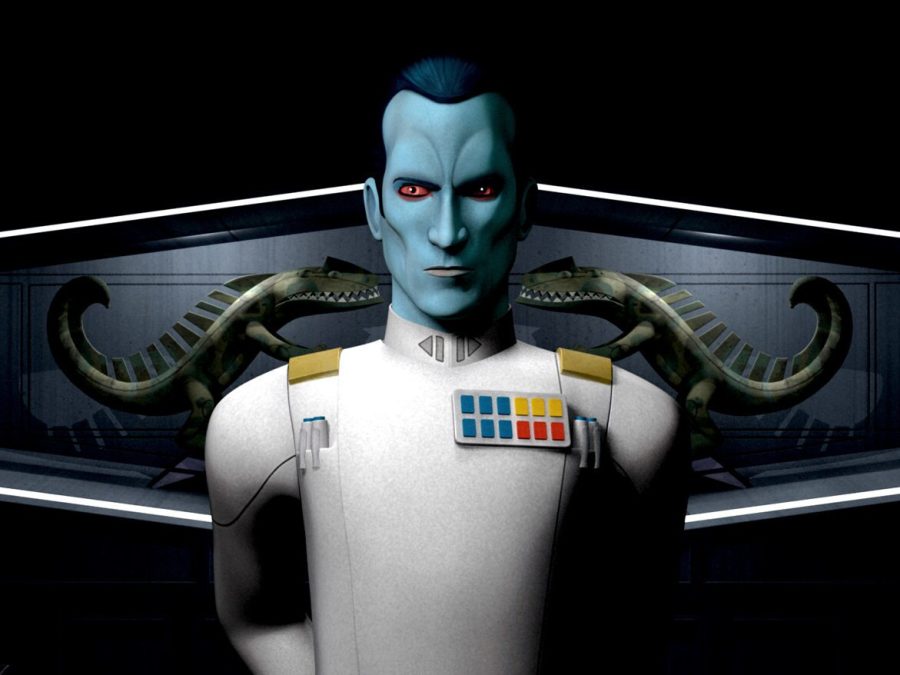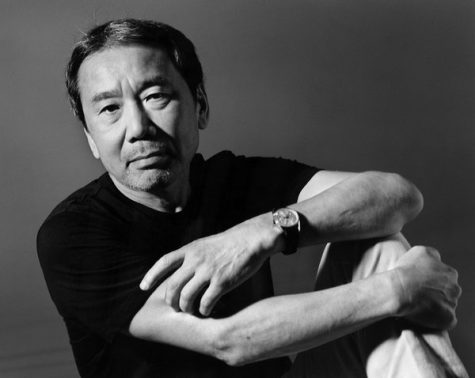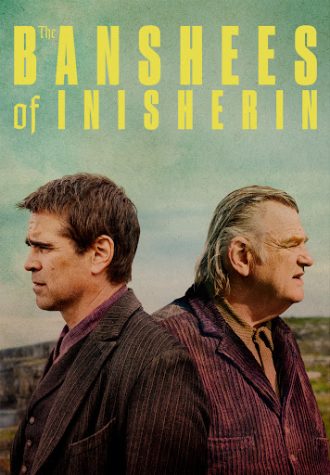American Politics Through the Lens of Timothy Zahn’s Thrawn
This article contains major spoilers for the Thrawn book trilogies.
It’s difficult to find a character who consistently captivates me the way Grand Admiral Thrawn does. Debuted in Timothy Zahn’s 1992 book Heir to the Empire, Thrawn asked an unheard of question to a world that only knew the original three Star Wars films: what if Imperial leaders ruled through logic and loyalty rather than fear and manipulation? How much more sustainable could that Galactic Empire be?
In those first 90’s books, Thrawn was one of the last surviving Imperial grand admirals, tasked with rebuilding the Empire’s remnants against the growing New Republic. The master tactician was iconoclastic: he never launched into rage, he applauded opponents’ victories, he nurtured the long war, and he possessed a passion for art. His appearance was also nonexistent among the human-ruled Empire. Thrawn is a Chiss, a blue-skinned humanoid with glowing red eyes from the backwater planets of the Unknown Regions.
The original 90s Thrawn trilogy has extended into two prequel trilogies, creating an exceptional character arc, and what I consider to be some of the most impressive political allegories in 21st century literature.
The original 90s Thrawn trilogy has extended into two prequel trilogies, creating an exceptional character arc, and what I consider to be some of the most impressive political allegories in 21st century literature. This is a paradox, perhaps, as Thrawn is constantly described as politically oblivious. As his protégé Eli Vanto remarks, “For all of Thrawn’s military cleverness, he had no idea how to navigate Coruscant politics.”
Thrawn’s storyline is split up into three trilogies: Ascendancy, following his career among his species in the Chiss Expansionary Defense Fleet; Canon, detailing his rise to power within the Empire; and Legends, featuring him as leader of the Imperial remnants. While Ascendancy and Canon are part of the canonical Star Wars universe, the Legends trilogy was declared part of the Expanded Universe after Disney acquired the franchise.
These trilogies form the tapestry that is Thrawn’s moral downfall; how the worldview of an unconventional genius who always fought in the name of the greater good slowly shifted into arrogance, apathy towards beings’ lives, and dismissiveness towards lesser alien species. He almost became the Imperials he defied. But never absolutely.
Ascendancy is the most obvious political allegory, painting the picture of America’s current divisive landscape. The oligarchical Ascendancy is run by nine Ruling Families who make up a political body called the Syndicure. (Families in this context are massive dynasties that Chiss can be born into by blood or “adopted” into through political maneuverings.) The families are constantly playing intricate political games with each other, allying with or siding against another family, and teetering on the brink of civil war. Their constant infighting on smaller issues leads them to be blinded to the Ascendancy’s biggest threat: the ferocious Grysk species that seeks to enslave beings and bend their minds to their will.
Like Chiss politicians, American politicians constantly play games out of self-interest. They attack opposing parties more than they work to actually benefit the people they represent. Bipartisanism is only found on issues like TikTok, which culminated in a congressional hearing that did not address the app’s immense privacy risks but was a thinly veiled facade to express xenophobic panic over China. Politicians handle the biggest threat to our existence, the climate crisis, by arguing about its very existence and occasionally reaching ineffective compromises instead of taking action to save our planet. Our stagnant politics reinforce the belief that we will be the ultimate reason for our own demise.
The families as rulers are epitomes of America’s elites. Huge oligarchical dynasties with overwhelming power don’t necessarily bring to mind our politicians but our billionaire corporations. Zahn continuously paints the elite of the galaxy’s affluent capital, Coruscant, as incompetent and nepotistic obstacles to producing results. This subtle undercurrent of anti-capitalism is a fascinating theme across the books, especially the Canon trilogy.
As a senior captain in the Ascendancy, Thrawn is one of the few people conscious of – and cares about – the Grysk threat. Seeing the existential risk to the future of his species’ culture, Thrawn believes “the sole reason for his existence…is to defend the Chiss Ascendancy and protect his people. He will do whatever is necessary to achieve that goal, and he will allow nothing and no one to stand in his way” – including centuries-old Chiss law. The rule Thrawn has particular trouble with is a zero-tolerance protocol toward preemptive strikes. Thrawn is always multiple steps ahead of his opponent; tactical logic leads him to attack enemies before they attack the Chiss. The political ramifications of this never cross his mind. Thus he regularly faces court martials and hearings in front of the Syndicure, where he undeniably shows results, despite those results being gained through illegal methods.
In this sense, Thrawn is like a progressive politician, an Alexandria Ocasio-Cortez or a Bernie Sanders. They see the broader, urgent issues of the world, such as the climate crisis, but their methods for fixing them require breaking the centuries-old capitalist system of America. Their demand for change does not consider the widespread reverence for these systems, so action is ultimately reduced to words. In the end, Thrawn does not win, either; he is exiled* from the Ascendancy and sent to live his days on a remote planet.
(I put a big asterisk next to exiled. The expulsion was supported by several politicians and presented as an official act. However, with the support of a few influential people, Thrawn’s exile was a front for a critical mission: to investigate the Empire and judge their ability to be an effective ally for the Chiss. What was originally an intelligence gathering mission resulted in Thrawn’s enlistment in the Imperial Navy.)
On the other end of the spectrum is Syndic Thurfian. He is a politician who rises to the highest position in a family, patriarch, while aggressively plotting to destroy Thrawn’s career. While the senior captain “considers results far more valuable than etiquette,” Thurfian and the Syndicure “wanted order, of course. Order, and obedience to protocols that had guided the Ascendancy for centuries.” Thrawn and Thurfian both belong to the Mitth family, and despite the success Thrawn brings to the Mitth, the syndic believes he will “bring ruin to the Mitth, and possibly to the entire Ascendancy.” Though Thrufian is ultimately successful in getting Thrawn exiled, the latter’s influence made its mark on the Ascendancy’s military and politics. Thurfian is a staunch Republican, a Mitch McConnell type, appealing to the older masses with traditional viewpoints but alienating the young people who gravitate towards a new way of approaching politics.
Just because Thrawn and Thurfian bring to mind politicians of our current age doesn’t mean their symbolism isn’t universal. They embody the conflict between traditionalism and progress. Whether it’s the Ascendancy or the Empire, Thrawn continuously presents the alternative to decaying institutions whose ultimate greatest threat is themselves. He provides evidence that embracing new ideas will unshackle our ancient chains and make our institutions unshakable. On the topic of Thrawn’s leadership style and influence, stormtrooper Commander Kimmund states, “if [Thrawn] lasted long enough, maybe those lessons would someday become the military standard. If that happened, he suspected, the Empire would stand forever.”
The largest thing that stands in Thrawn’s way are elites who thrive off traditionalism and cower at progress, knowing that a changing world will no longer tolerate their corruption and render them irrelevant.
Returning to the topic of young people, Che’ri was the Ascendancy character I related to most as a teenage reader. The Chiss Ascendancy is located in the Chaos, an area in the Unknown Regions with hyperspace lanes that are incredibly difficult to travel. Ships could do individual hyperspace jumps, but this takes an immense amount of time. The Chiss secret to navigating the Chaos lies in its knowingly named sky-walkers. Female Chiss are the only of their species who can be Force-sensitive, and they lose the ability around 14 years old. Using the Force (or Third Sight, as the Chiss call it) to navigate ships is a substantially more efficient way to travel. Thus, young girls are enlisted in the sky-walker program to navigate military ships. This puts the ship’s mission and the lives of the people onboard in the hands of a nine-year-old girl.
Chiss girls are around five years old when they are taken away from their families, so obviously that leads to great emotional distress for them. Instead of helping the girls process this traumatic event, the Defense Fleet wipes their memories – a policy spearheaded by Thurfian. Once assigned to a ship, the girls are assigned caregivers to look after them. The majority of these caregivers were not sky-walkers themselves, so they have little patience for what the girls are experiencing. The girls succumb to horrible sickness and night terrors as a result of their caregivers and commanders demanding they overwork themselves. However, once a girl loses her Third Sight, there’s no future lined up for her. Che’ri’s caregiver, Thalias, lost her Third Sight at 13. In her mind, “a full year ahead of the usual schedule, her life was over. At age thirteen.” There is one particular independent organization in the Ascendancy that helps sky-walkers adjust to post-military life, but it is relatively unknown. Ultimately the girls have no one to navigate them through the transition process to the rest of their life.
The sky-walker’s way of navigating the Chaos is a secret the Ascendancy cannot afford to be revealed, causing the Syndicure to be extremely protective over sky-walkers. When Thrawn takes Che’ri on a mission with just the two of them, the Syndiure and the Aristocra are furious. Some members even wanted to “bring charges against Thrawn for putting a sky-walker at risk.” While the Syndicure believes a solo mission is the biggest threat to the girls’ safety, it turns out the Grysks are. The Grysks’s first plan of attack on the Ascendancy is to kidnap their sky-walkers and use them as slaves.
Politicians care about their young people in word, but in action it’s obvious they are neglected. Che’ri is like a kid in the face of the climate crisis: everyone is telling her it’s her responsibility to solve it, while her mental health is ignored, she lacks fundamental life experience and, right, she’s only nine years old. Recent stories like that of Jack Teixeira reveal many young people lack compassionate, sensible older mentors who can help guide them towards success.
Society has heaped so much stress on its youth while constantly projecting impending doom in their faces.
Society has heaped so much stress on its youth while constantly projecting impending doom in their faces. They have been taught nobody is looking out for them. Nobody will save them. If a kid makes it to thirteen, they assume the climate crisis will burn the rest of their life away.
(There could also be an argument that Thrawn and Che’ri’s relationship represents the youth’s shift to progressive politics. Thrawn is the only person who sees Che’ri’s hidden dream of wanting to become a pilot. He puts enough trust in her to let him fly his own ship, which exposes Che’ri to new possibilities and makes her future seem less bleak. She finally has someone who understands her and sees her potential, so she opens her trust up to Thrawn. He allows her to find a place in the universe.)
The next Thrawn trilogy follows the Chiss’s rise to the rank of grand admiral in the Empire. Xenophobia is built into the anti-alien Empire’s bones, with a military dominated by elitist white human males who rose to their positions through connections rather than competence. Zahn clearly had a point in making their navy’s most successful commander a backwater alien whose flagship is mainly staffed by female officers. Since George Lucas based the Galactic Empire off the Third Reich, Thrawn could be compared to a Jewish person promoted to top general due to sheer brilliance and skill.
Being exposed to the Empire’s methods began to shift Thrawn’s worldview. A hallmark of Thrawn’s character is that he analyzes species’ art to understand their battle tactics. Art is inherently emotional; through it Thrawn builds an empathy for his opponents and an appreciation for their culture. Even though Thrawn’s goal is still to protect the Chiss from the Grysks, he must manipulate the Empire to his will in order to do so. He takes on too large a task, believing he alone can build a better empire that can be a formidable ally for the Ascendancy. His arrogance begins to eclipse his empathy.
After the Empire’s defeat, Thrawn does rise up in the remnants as its new leader, chronicled in the Legends trilogy. Thrawn has gone from being a morally gray protagonist in the Ascendancy trilogy to an anti-hero in the Canon trilogy to a full-fledged antagonist in the Legends trilogy. Thrawn sells himself out as leader of the remnant Empire, due to his complete loss of empathy. The man who was once the sole admiral in the Empire who cared about civilian lives now openly brags about obliterating the species of an entire planet. He no longer sees art as both a window to culture and a window to tactical knowledge but solely a tool used to defeat enemies.
His downfall is a result of underestimating the species he once appreciated. Thrawn’s Empire purposefully manipulates the climate of Honoghr, home planet of the Noghri species, so it remains a dead wasteland. In exchange for meager resources gifted by the Empire, Noghri males must become assassins for the regime. Thrawn never believed the Noghri would realize they were being manipulated and dismissed their capabilities as a threat to his Empire. When Leia Organa Solo came to Honoghr and exposed the truth to the species, the Noghri rose up against the Empire. Thrawn’s personal Noghri bodyguard, Rukh, ends the admiral’s life by literally stabbing him in the back. Rather symbolic that the alien whose staff of female officers revolutionized the Empire was defeated by a woman and a legion of aliens.
When Thrawn loses his empathy, his vision can no longer be about protecting the Chiss. Though he may fight in the name of the greater good, his goal becomes washed away in arrogance, immorality, and destruction. Such is the same for our politicians: when their empathy fails, politics is no longer about the people, and politics fails the people.
Though Thrawn’s soul lies in Timothy Zahn’s books, he has been adapted into Star Wars’s core visual media universe. First he was a main villain in the animated series Rebels; now he is going to be featured in the upcoming live action series Ahsoka. I saw the Rebels adaptation of Thrawn as a waste. Despite its excellence, Rebels is a show that is often limited by its TV-Y7 rating, forcing their villains to become unoriginal, cookie-cutter Imperial officers. Since a central part of Thrawn’s character is to be the alternative to the cookie-cutter Imperial, he was brutally mischaracterized as another one-dimensional, ineffectual officer who happened to be blue. He took up the spot of a new, interesting villain who fit the mold.
My hope for Ahsoka is that Thrawn is not wasted. Recent live action Star Wars shows such as Andor have allowed for characters with more depth. These projects have the capacity to explore the complicated relationship between morals and politics.
When Timothy Zahn writes Thrawn, he obviously has a point he’s making with him. Thrawn is multi-layered, as a character and as an allegory. He can either be interpreted as a warning to the audience, or as an aspiration.















